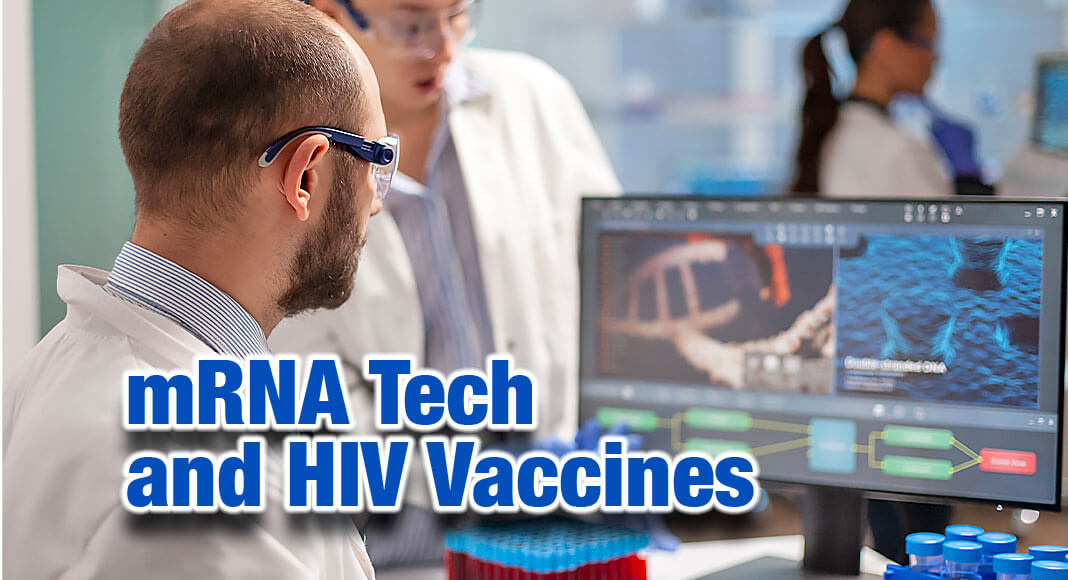
Mega Doctor News
By Duke Health
Newswise — DURHAM, N.C. – Using mRNA technology like that in the COVID-19 vaccines, researchers have demonstrated a successful way to deliver a potential HIV vaccine, researchers at Duke Human Vaccine Institute report.
Publishing online March 15 in the journal Cell Reports, the research team describes an important advancement in what is a complex vaccine development process. The approach uses mRNAs within lipid nanoparticles that are capable of stimulating HIV antibodies.
“This work demonstrates that we now have a practical platform for producing a complex HIV vaccine,” said co-senior author Barton Haynes, M.D., director of the Duke Human Vaccine Institute. “The mRNA technology has been highly successful for COVID-19, and we previously found that it was also effective for a Zika vaccine. But HIV is so much more complicated. This is a major step forward.”
Haynes and colleagues – including co-senior author Drew Weissman, M.D., Ph.D., the Roberts Family Professor in Vaccine Research at the Perelman School of Medicine at the University of Pennsylvania — found that mRNAs, which use genetic material to teach immune cells to recognize the targeted pathogen, are able to encode complex antigens that are key to HIV vaccine development.
Because the virus that causes AIDS mutates rapidly, only certain sites on its outer envelope remain intact through the ongoing changes. A successful vaccine requires perfectly structured proteins aimed at these sites to trigger the immune response – a technical hurdle that proved challenging with older vaccine technologies.
The research team was able to build an mRNA vaccine that could encode for the acquisition of the critical mutations, and monoclonal antibodies that neutralize diverse HIV.
“I began studying HIV and AIDS at the National Institutes of Health, and those that face the diseases have continued to be a group of people I really care about,” said Weissman, whose decades-long mRNA research led to the effective SARS-CoV-2 mRNA vaccines. “I am excited that the mRNA-vaccine platform, which has helped to slow the spread of COVID-19 and decrease death from it, may be able to be put to work to protect people from HIV. These remarkable results may mark the next era of mRNA research and healthier futures for more people.”
“Manufacturing complex nanoparticle protein immunogens on a large scale presents significant challenges, so we are encouraged that the use of mRNA raises the possibility of making such a complex immunization regimen both logistically achievable and potentially cost-effective,” Haynes said.
In addition to Haynes and Wiessman, study authors include lead author Zekun Mu, with Kevin Wiehe, Kevin O. Saunders, Rory Henderson, Derek W. Cain, Robert Parks, Diana Martik, Katayoun Mansouri, Robert J. Edwards, Amanda Newman, Xiaozhi Lu, Shi-Mao Xia, Amanda Eaton, Mattia Bonsignori, David Montefiori, Qifeng Han, Sravani Venkatayogi, Tyler Evangelous, Yunfei Wang, Wes Rountree, S. Munir Alam and Wilton B. Williams at Duke University School of Medicine; Bette Korber and Kshitij Wagh at Los Alamos National Laboratory; Ying Tam and Christopher Barbosa at Acuitas Inc.; Ming Tian and Frederick W. Alt at Harvard Medical School; and Norbert Pardi at the University of Pennsylvania.
The study received support from the Division of AIDS, National Institute of Allergy and Infectious Diseases, National Institutes of Health, (AI135902, UM1AI144371).
Acuitas Therapeutics provided the lipid nanoparticles that encapsulate the mRNAs for vaccine delivery.












